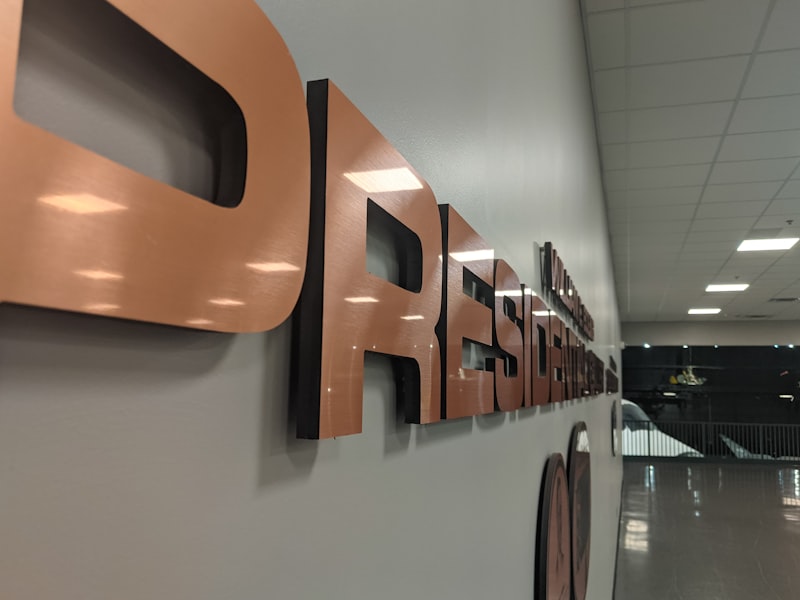
Abraham Lincoln’s Gettysburg Address stands as an enduring testament to the ideals of democracy and freedom. Delivered amidst the Civil War, Lincoln’s concise yet profound speech at Gettysburg battlefield redefined the purpose of the war, framing it as a struggle for a “new birth of freedom” and ensuring that “government of the people, by the people, for the people, shall not perish from the earth.”

Franklin D. Roosevelt’s inaugural address during the Great Depression remains etched in memory for its reassuring yet resolute tone. In 1933, Roosevelt famously declared, “The only thing we have to fear is fear itself,” instilling hope and confidence during one of the nation’s darkest hours and laying the groundwork for his New Deal policies.
Another pivotal moment came with John F. Kennedy’s stirring 1961 speech challenging America to land a man on the moon before the end of the decade. Kennedy’s bold vision captured the nation’s imagination, symbolizing American ingenuity and determination during the Cold War era.
Ronald Reagan’s 1987 speech at the Brandenburg Gate in Berlin, where he famously urged Mikhail Gorbachev to “tear down this wall,” became a defining moment in the Cold War’s conclusion. Reagan’s words echoed the aspirations of millions living behind the Iron Curtain and signaled the beginning of the end for Soviet domination in Eastern Europe.
Barack Obama’s 2008 speech on race, delivered in response to controversy surrounding his former pastor, Reverend Jeremiah Wright, showcased his ability to navigate complex issues with grace and honesty. Obama’s address transcended politics, sparking a national dialogue on race relations and reflecting on America’s journey towards a more perfect union.
These speeches, each in their own way, illustrate the power of words to inspire, unite, and define pivotal moments in American history. They remind us that presidential rhetoric isn’t just about policy; it’s about shaping the collective conscience and forging a path forward for the nation.
From Emancipation to Equality: Lincoln’s Gettysburg Address and Its Lasting Impact
Abraham Lincoln’s Gettysburg Address stands as a pivotal moment in American history, a concise yet profound speech that encapsulated the nation’s struggle and vision for the future. Delivered in November 1863, amidst the American Civil War, Lincoln’s address was not just a dedication of a cemetery, but a clarion call for national unity and a reaffirmation of the principles upon which the United States was founded.
In just over two minutes, Lincoln invoked the Declaration of Independence’s core principle that all men are created equal, emphasizing that the Civil War was a test of whether a nation conceived in liberty and dedicated to the proposition that all men are created equal could endure. His eloquence painted a picture of a nation reborn, dedicated to the idea that democracy should ensure equality and freedom for all its citizens.
The impact of Lincoln’s words resonates to this day, shaping the course of American history. The Gettysburg Address redefined the purpose of the Civil War, transforming it from a struggle to preserve the Union into a fight for human equality and liberty. Lincoln’s call for a “new birth of freedom” inspired generations of Americans to strive towards achieving a more just and inclusive society.
Moreover, the Gettysburg Address marked a turning point in how Americans viewed their nation. It shifted the focus from a collection of states to a singular, indivisible nation united by common ideals. Lincoln’s address galvanized the nation’s commitment to liberty and democracy, setting a precedent for future leaders to uphold these principles in times of adversity.
FDR’s ‘Day of Infamy’ Speech: How Pearl Harbor Reshaped America’s Destiny
Roosevelt’s address, vividly remembered for its poignant opening words, “Yesterday, December 7th, 1941, a date which will live in infamy…”, galvanized a nation still reeling from the shock of the attack. In his speech, Roosevelt outlined the events of the attack and swiftly called for a declaration of war against Japan. This declaration, passed by Congress within hours, united the country in a resolve to combat the Axis powers.

The impact of Roosevelt’s speech extended far beyond its immediate call to arms. It symbolized a turning point in American history, marking the end of isolationist policies and the beginning of a new era as a global superpower. The aftermath of Pearl Harbor saw the rapid mobilization of American industry and manpower, leading to unprecedented economic growth and technological advancement.
Moreover, Roosevelt’s leadership during this critical time solidified his legacy as a wartime president. His ability to rally the nation with his stirring rhetoric and decisive actions not only bolstered morale domestically but also garnered international respect and support for the Allied cause.
Roosevelt’s ‘Day of Infamy’ speech remains a poignant reminder of the resilience of the American spirit in the face of adversity. Its legacy continues to resonate today, reminding us of the sacrifices made and the courage shown by those who defended freedom and democracy during one of the darkest chapters in modern history.
JFK’s ‘Moonshot’ Speech: A Bold Vision that Transformed Space Exploration
Kennedy’s speech wasn’t just about landing a man on the moon; it was a declaration of America’s commitment to scientific progress and innovation. He painted a vivid picture of a future where astronauts would venture beyond Earth’s orbit, pushing the boundaries of human achievement. With rhetoric that resonated deeply, Kennedy infused his words with a sense of urgency and purpose, galvanizing the nation behind a singular goal.
The ‘Moonshot’ speech wasn’t just a proclamation; it was a call to action. Kennedy challenged scientists, engineers, and the American public to embrace the unknown and strive for greatness. His words sparked a surge of investment in space technology and research, propelling the United States to the forefront of the Space Race.


Like an artist with a blank canvas, Kennedy crafted his speech with precision and passion, using language that was both poetic and pragmatic. He spoke of space as a new frontier, ripe with opportunities for discovery and exploration. By invoking imagery of distant planets and uncharted territories, Kennedy captured the collective imagination of a nation hungry for progress.
The legacy of JFK’s ‘Moonshot’ speech endures to this day. It serves as a testament to the power of vision and leadership in shaping the course of history. Through his words, Kennedy not only inspired a generation of scientists and astronauts but also ignited a spark of curiosity and wonder that continues to drive exploration beyond the confines of our planet.
Reagan’s ‘Tear Down This Wall’ Speech: The Turning Point in Cold War History
The speech was not merely a political statement but a powerful assertion of freedom and human dignity. Reagan’s use of the phrase “Mr. Gorbachev, tear down this wall!” resonated globally, encapsulating the aspirations of millions living under communist rule. It became a rallying cry for those yearning for reunification and an end to the Cold War tensions that had defined international relations for so long.
Reagan’s words were not without controversy or skepticism at the time. Some doubted the practical impact of such rhetoric, questioning whether it could truly influence geopolitical realities. However, history would prove otherwise. The speech galvanized public opinion, both in the West and behind the Iron Curtain, reinforcing the moral imperative of freedom over totalitarianism.
Metaphorically, Reagan’s speech can be likened to a beacon cutting through the fog of Cold War politics, offering a clear vision of a united Europe. It underscored the importance of ideological clarity and the power of individual agency in shaping historical outcomes. Like a hammer striking at the foundations of division, Reagan’s words resonated as a call to action, inspiring generations to stand against oppression and champion democratic values.
Today, the ‘Tear Down This Wall’ speech remains a testament to the enduring power of rhetoric in shaping global events. It serves as a reminder of the human desire for liberty and unity, transcending political boundaries and resonating with all who value freedom above walls.
Frequently Asked Questions
Can presidential speeches change the trajectory of national events and policies?
Learn how presidential speeches can significantly influence national events and policies, shaping their course and direction.
What makes a presidential speech memorable and historically significant?
Discover what elements contribute to making a presidential speech memorable and historically significant, exploring aspects such as rhetoric, context relevance, emotional appeal, and lasting impact on society.
How do presidential speeches influence public opinion and policy decisions?
Presidential speeches can significantly impact public opinion and policy decisions by articulating the government’s priorities, shaping public discourse, and mobilizing support for legislative agendas. They serve as a direct communication channel from the executive to the public and lawmakers, influencing perceptions and guiding policy directions.
What are some famous presidential speeches that significantly impacted American history?
Explore influential presidential speeches that shaped American history, including Abraham Lincoln’s Gettysburg Address, Franklin D. Roosevelt’s ‘Day of Infamy’ speech after Pearl Harbor, and Martin Luther King Jr.’s ‘I Have a Dream’ speech during the Civil Rights Movement.
Which presidential speeches are considered pivotal moments in shaping American politics?
Explore pivotal presidential speeches that have significantly influenced American politics, from Abraham Lincoln’s Gettysburg Address to Franklin D. Roosevelt’s ‘Day of Infamy’ speech. These speeches are landmarks in history, shaping public opinion and policy decisions.


